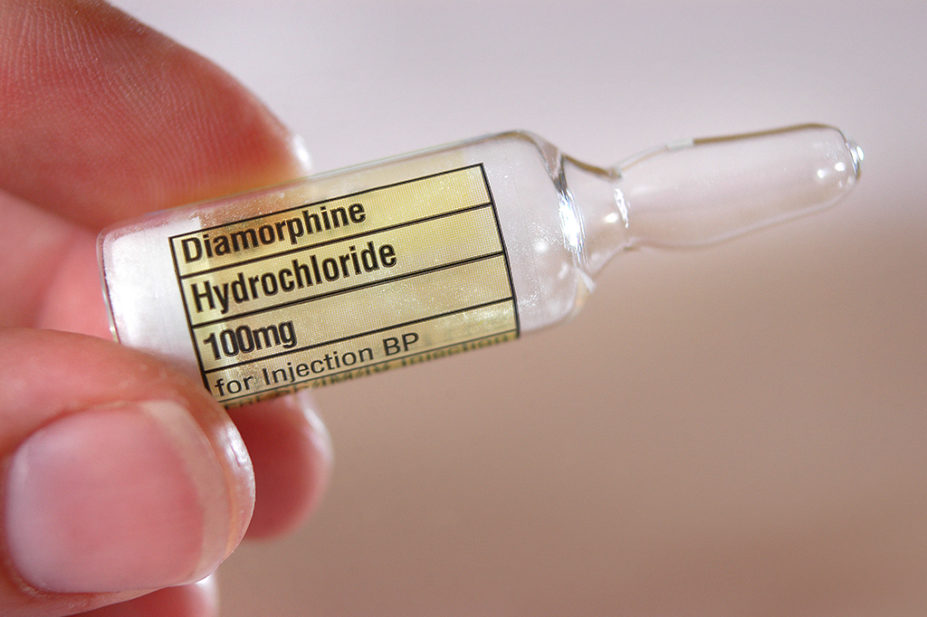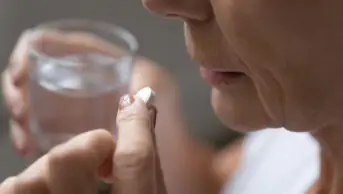
Jim Wileman / Alamy Stock Photo
Patients who have used diamorphine as a substitute for heroin are now relapsing because of a national shortage, charities have warned.
The Department of Health and Social Care (DHSC) confirmed that 5mg, 30mg, 100mg and 500mg injections of diamorphine are currently out of stock.
Clinicians have been advised to switch patients to alternative opioids, but experts warned this was often not an option for patients who had been stable on diamorphine for years because of their addiction.
Claire Robbins, advocate and drugs adviser at the charity Release, told The Pharmaceutical Journal that pharmacists were distressed after seeing patients they had known for 10 or 15 years deteriorate because they could not get the medicine they needed.
While there have been periodic shortages of diamorphine for some time, currently there is no stock anywhere, and it is thought that up to 200 people may be affected.
“There is nothing that matches up to diamorphine; there are alternatives but they don’t really work,” Robbins said.
“These are patients that have been on prescriptions for 20 years and have been very stable and working, living their lives, and are closely monitored to ensure they’re not on other drugs.
“The majority we are supporting at the moment have now relapsed, often for the first time in 10 or 15 years and that’s really devastating for them,” she said.
“These people have built relationships with their pharmacists over 10 to 15 years and I’ve had pharmacists on the phone who are quite distressed about seeing their patient deteriorate.”
Roz Gittins, director of pharmacy at charity Humankind, said: “The shortage has left treatment providers in really difficult situations and has put some of our most vulnerable people at risk without the medication they have been stable on — with all the associated risks that come with this, such as a potentially fatal opioid overdose should they lapse.
“Whilst organisations are doing what they can to look at alternatives, it inevitably causes significant anxiety for all concerned.”
Rachel Britton, director of pharmacy at the addiction charity With You, said: “We are concerned about the short supply of diamorphine by injection, especially for people who have exhausted all other treatment options for their issues with heroin”.
A DHSC spokesperson said they were aware of an ongoing issue with diamorphine injections.
“We want to reassure patients that alternative opioid products, including all other forms of morphine, remain available and if they have any concerns, they should speak to their prescriber or pharmacist.
“We are working with suppliers to manage the issue, and with NHS England and national experts on advice for healthcare professionals regarding alternative treatments and affected patients.”
There are two suppliers [of diamorphine] in the UK — Wockhardt and Accord — and the DHSC said the supply chain had been unstable since March 2020.
It is expected that some stock of diamorphine 5mg injection is due to become available later in June 2022 and further diamorphine 30mg injections will be available during July 2022. The 100mg injection is also expected back in stock later in June 2022.
A spokesperson for Accord Healthcare said the issue was “realising the raw material into its finished dosage form”.
“As the UK’s largest volume supplier of generic medicines, we take our responsibility very seriously and we have been working closely with the Medicines and Healthcare products Regulatory Agency (MHRA) and the Department of Health and Social Care, keeping them regularly informed of our stock situation,” they said.
“We are currently out of stock of 100mg [diamorphine injections] and are fully committed to working with the MHRA to test and release our next batch as soon as possible, whilst keeping our key stakeholders and customers informed of our progress as necessary.”


